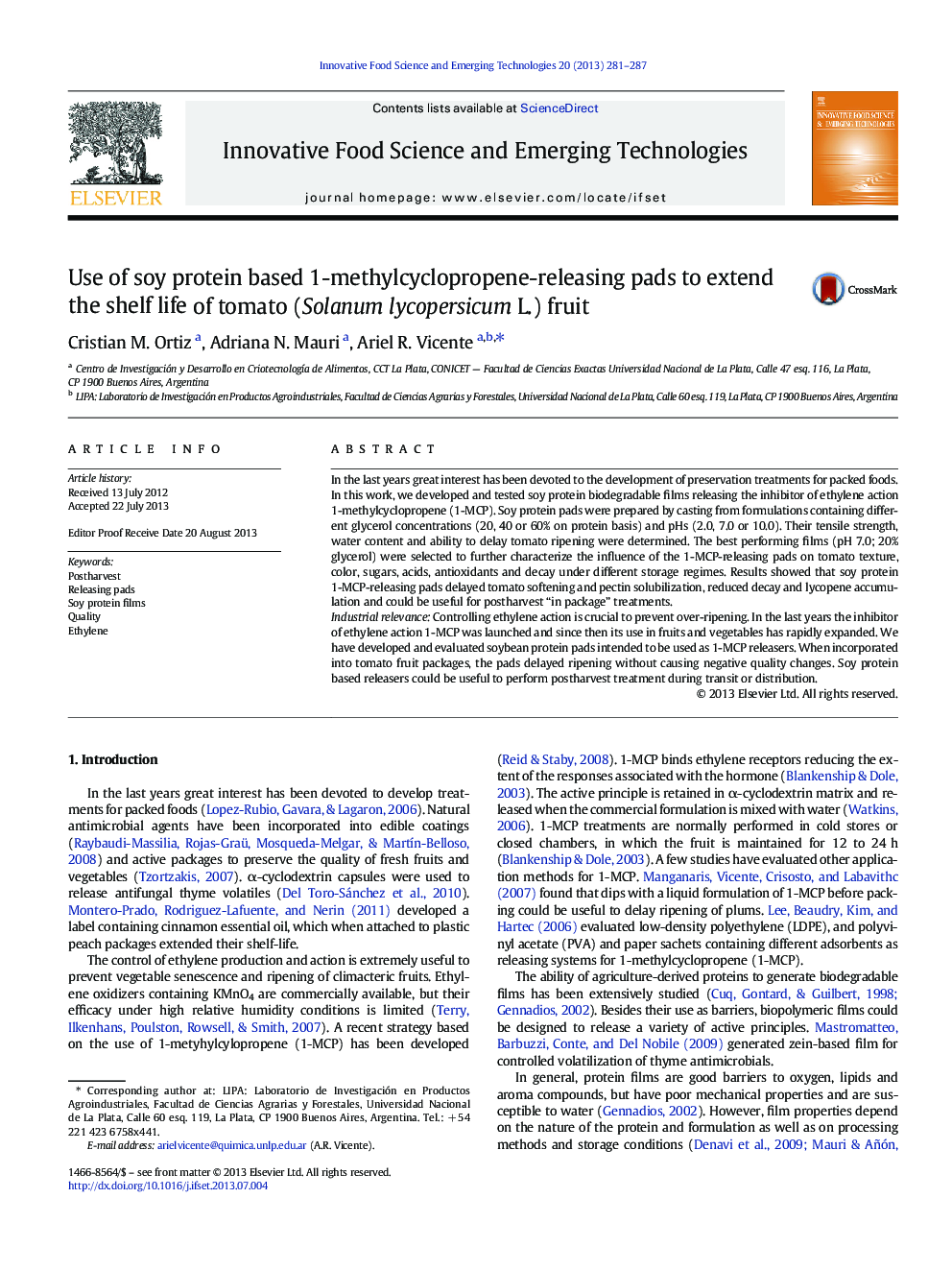| Article ID | Journal | Published Year | Pages | File Type |
|---|---|---|---|---|
| 2086601 | Innovative Food Science & Emerging Technologies | 2013 | 7 Pages |
•Glycerol-plasticized protein films were used to generate 1-MCP-releasing pads.•Water absorption of protein films at high RH facilitates 1-MCP release.•Ripening was delayed in tomato packages containing 1-MCP-releasing pads.•Protein pads could be useful to perform “in package” treatments in fresh fruits.
In the last years great interest has been devoted to the development of preservation treatments for packed foods. In this work, we developed and tested soy protein biodegradable films releasing the inhibitor of ethylene action 1-methylcyclopropene (1-MCP). Soy protein pads were prepared by casting from formulations containing different glycerol concentrations (20, 40 or 60% on protein basis) and pHs (2.0, 7.0 or 10.0). Their tensile strength, water content and ability to delay tomato ripening were determined. The best performing films (pH 7.0; 20% glycerol) were selected to further characterize the influence of the 1-MCP-releasing pads on tomato texture, color, sugars, acids, antioxidants and decay under different storage regimes. Results showed that soy protein 1-MCP-releasing pads delayed tomato softening and pectin solubilization, reduced decay and lycopene accumulation and could be useful for postharvest “in package” treatments.Industrial relevanceControlling ethylene action is crucial to prevent over-ripening. In the last years the inhibitor of ethylene action 1-MCP was launched and since then its use in fruits and vegetables has rapidly expanded. We have developed and evaluated soybean protein pads intended to be used as 1-MCP releasers. When incorporated into tomato fruit packages, the pads delayed ripening without causing negative quality changes. Soy protein based releasers could be useful to perform postharvest treatment during transit or distribution.
